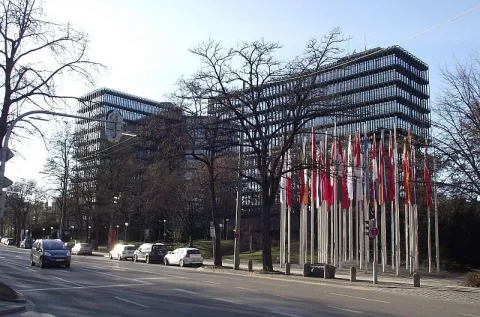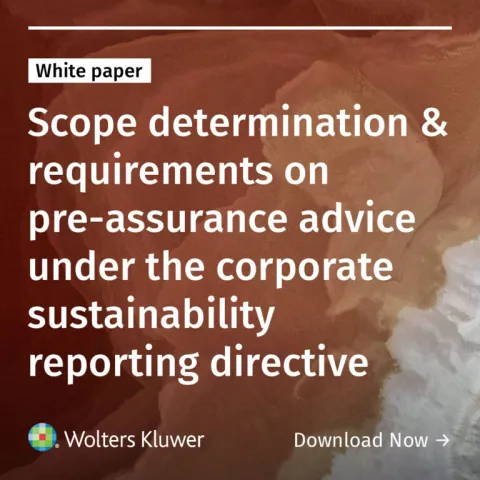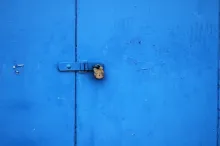Video conferences are the new normal for EPO oral opposition proceedings
November 23, 2022
Video conferences will become the default format of oral opposition proceedings in at the European Patent Office as of 2023. Only under certain circumstances, and when the opposition division permits it, will oral proceedings in opposition be conducted in person.
A decision to that effect was announced yesterday, a week after the publication of the final report on a pilot project, which showed over 77% of 357 respondents in interviews on oral proceedings by video conference (VICO) found these to be good (39%) or very good (38%).

Some quotes from the report’s conclusions:
‘Experience and feedback: through more than 6000 oral proceedings in opposition conducted by VICO, a majority of examiners and parties have not only become familiar with VICO, but also come to regard VICO as their preferred format. The high number of oral proceedings in opposition (certainly higher in 2021 than in 2019), as well as the wealth of internal and external training measures offered during the pilot, have enabled all those involved to gain more experience and confidence.’
‘Technological advancements: the way oral proceedings in opposition are conducted today clearly differs from how they were done before the pilot and, in some important details, even from how they were done last year. The state-of-the-art technological platform, the digital tools available for examiners and parties, the way evidence is taken, improvements in remote interpretation, the mastering of the technology by chairpersons, division members and other participants, and the greatly increased access for the public are among the most important features and developments that make this format in many aspects superior to in-person proceedings.’
‘Evolving legal and procedural framework: over the course of the pilot the legal framework has been enriched with decisions of the EPO President and notices issued by the EPO, an amendment of the EPC Implementing Regulations concerning the taking of evidence by VICO (Rules 117, 118 EPC) as well as additions to the Guidelines. For oral proceedings on appeal by VICO, a specific provision was added to the Rules of Procedure of the Boards of Appeal (Art. 15a). Most importantly, in decision G 1/21 the EPO’s highest judicial authority, the Enlarged Board of Appeal, confirmed that oral proceedings in the form of a VICO are oral proceedings within the meaning of Article 116 EPC, that the rules and practices applicable to oral proceedings also apply to them, and that oral proceedings by VICO comply with the principles of fairness of proceedings and the right to be heard. As of today, more than 20 appeal decisions have applied the teachings of decision G 1/21 in individual cases (…).’
‘The achievements made over the past thirty months enable the EPO to conclude the pilot and take the next step with confidence.’
According to EPO president António Campinos: ‘The pandemic has been a catalyst for change affecting many aspects of our patent granting process. Applicants and their representatives have already found that the widespread adoption of videoconferencing is permanently changing the way they do business. Most have welcomed the way in which we have embraced new technologies and the opportunities they provide to save time and money, and reduce carbon emissions, while still allowing them to argue their case effectively. The pilot has taught us all many valuable lessons and allowed us to test various ways of working. After more than two and a half years it is right that we now provide clarity and adopt VICOs as the standard format.’
You may also like














Concerned observer
I am curious about the lawfulness of the President's decision (for oppositions, as well as for all other first instance proceedings before the EPO). At the very least, G1/21 provides a reason to suspect that the decision is unlawful, to the extent that it does not require "good reasons" to be demonstrated for selecting the VICO format. It is amazing to see that the EPO's Legal Division does not appear to have spotted that there are clear reasons to believe that President's decision could well be unlawful. On the other hand, would we ever find out if the Legal Division has cautioned the President against taking that decision? In any event, it is highly significant that the President's decision closes the door to separate appeals against decisions to impose the VICO format for oral proceedings. This is for two reasons. Firstly, there are reasons to believe that, according to principles of established EPO case law, a decision to impose VICO is a "decision" in substance, and is therefore open to appeal. To quote from the CLBA (https://www.epo.org/law-practice/legal-texts/html/caselaw/2022/e/clr_iii_k_3_1.htm): "The decisive question was whether the document at issue, when objectively interpreted in its context, could have been understood by its addressees as a final, i.e. not merely preliminary, and binding determination of substantive or procedural issues by the competent organ of the EPO". A decision to impose VICO indeed represents a final determination on a procedural issue by a competent organ of the EPO. It is therefore doubtful whether the President of the EPO has the power to deny parties to opposition proceedings the right to appeal against such a decision. Secondly, denying parties a separate right of appeal against decisions to impose VICO makes those decisions effectively impossible to set aside, even if they are unlawful. This is because there is very little chance of any Board of Appeal ordering a re-run of first instance oral proceedings in the correct (in-person) format. Also, even if they did, this would not put the appellant in the same position as they would have been if the first instance department had not (unlawfully) imposed VICOs. This is firstly because of the loss of time. However, for opposition proceedings, the fact that the patentee will already have heard all of the opponents' arguments (and vice versa) means that a re-run can never provide the hearing that the appellant should have had. Whilst VICOs have their place, and are a really useful format in the right circumstances, I seriously worry that the EPO management's lack of regard to the rule of law is getting completely out of control.
Patent freak
The mere purpose of any survey commissioned by the EPO has the aim of obtaining the result desired by the upper management. Should the result of the survey not be to the liking of the upper management, it is simply ignored or presented in such a way that the result confirms the views of the upper management. In the present case, it was to show that users plebiscite OP in the form of ViCo. Following the “results” of the survey, it is without surprise that the president of the EPO has decided on 22.11.2022, that all OP before examining divisions, opposition divisions, the Legal Division and the Receiving Section are to be held as by videoconference. Mandatory OP by ViCo in first instance have actually been introduced in order to save on office space, so that some buildings can be sold and more money ends in the “cooperation” budget. The Covid pandemic was a good pretext to push such a change trough and ignore the EPC and its Rules of Implementation. That the EPO adapts its procedures to new possibilities offered by modern telecommunication means is not at stake. This should however not be imposed on the users. The users have to be given the choice. If all parties agree on OP by ViCo then the OP should be held by ViCo. If one party prefers OP in-person, the OP should be held in a mixed mode. That a mixed mode for OP might not be to the liking of some lobbying group, it remains that lobbyists should not be allowed to decide what is good for all. But just look at what happens with the UPC where the same lobbying group has been very active! In the meantime we have had G 1/21 which at least considers that OP in person are the “gold-standard”. Why in-person OP are the gold standard before the BA and not before a first instance is a mystery. Art 116, R 115 and 116 do not distinguish between first instance and BA. What is then the legal basis in the EPC for such a distinction? During the OP of G 1/21, the representatives of the president did not hesitate to claim that the EPC can be amended by secondary legislation. It seems that they have forgotten Art 172 and Art 164. When looking at the EPC and its Rules of implementation, I fail to find a legal basis for OP by ViCo. OP by ViCo have been decided by order of mufti and the BA were forced to adopt them by amending the RPBA20. Now they are mandatory for good at least in first instance. A mere reference to R 117 and 118 cannot be considered as a legal basis for mandatory OP by ViCo. R 117 merely provides that the decision on taking evidence specify whether it will be conducted by videoconference. R 118(2,a) merely provides that the summons to take evidence specify whether it will be conducted by videoconference. This is a bit short of a proper legal basis. The lack of legal basis in the EPC of OP by ViCo is not the only problem. There are other parts of the decision lacking legal basis. Art 2(1) of the decision of 22.11.2022 provides that “The members of an examining or opposition division may connect to the oral proceedings by videoconference from different locations”. I fail to find in the EPC and its Rules of implementation the legal basis allowing a deciding body, be it a first instance division or a BA, not to sit together when deciding the fate of an application/opposition. I very much doubt that Art 125 will help in this matter. In Germany parties can be connected by video, but the deciding body has to sit in the same room. I doubt that this would be different in all other member states of the EPO. As far as taking evidence is concerned, R 117 and 118 open the door to cheating. There is no guarantee that the witness/expert to be heard is not listening to the OP as public, or sitting next to a member of the public listening to the OP. I would not trust a simple declaration of the witness/expert that he/she is not listening in the OP. With in-person OP at least, guarantee was given that the witness would not listen in the OP. Such a guarantee could only be given if the witness/expert would be obliged to give its statement in the premises of a court in one of the member states. Then, there is no problem with a video connection. In the absence of this guarantee, hearing of witnesses/experts cannot be given any evidential value. In spite of the usual verbose comments in the communiqué of 22.11.2022, the service given to the users of system has been degrading in the latest years. The EPO has always decided amendments to the procedure which could help it and disregarded the needs or wishes of the users. The present decision is a prime example of EPO's casual attitude towards its users. A further recent example is the suppression of the 10 days rule, even in case of postal delivery. An older example is the strict limitation under R 79 to only send to the parties the opposition statement and the reply of the proprietor. There are two decisions of the EBA under Art 112a according to which the parties have no obligation to regularly consult the electronic file. Worse, the BA have adopted the same attitude in appeal. How long will this deterioration of the service given to the users will continue? How can this deterioration be stopped?
Extraneous Attorney
So the new overall scheme is: in first-instance proceedings, OPs are held by Vico unless and until you request otherwise AND you manage to persuade the EPO that “there are serious reasons against” holding the OPs by Vico. While this scheme does not literally contravene the holding in G1/21 (which was limited to appeal proceedings), it blatantly flouts the underlying reasoning, see e.g. reasons 45-50 of G1/21 — bearing in mind that there is no basis in Article 116 EPC for treating first-instance OPs differently than appeal OPs. Even the EPO’s management’s decisions that led to G3/19 look tame in comparison. I never thought it would happen, but the EPO’s management has made it happen: now I want the EPO to be turned over to the EU. At least the opinions of the court of last resort would be worth more than the paper they are printed on, and the staff would have an available and effective remedy against management abuses. The non-EU EPC member states would still do fine: either they have the resources for examining patent applications by themselves (e.g., Switzerland, Great Britain, Norway, Turkey), or they can enter an agreement with the EU to give effect to a hypothetical EU patent, either by default (like Liechtenstein with Switzerland) or upon request from the applicant (like Morocco, Moldova, etc.).